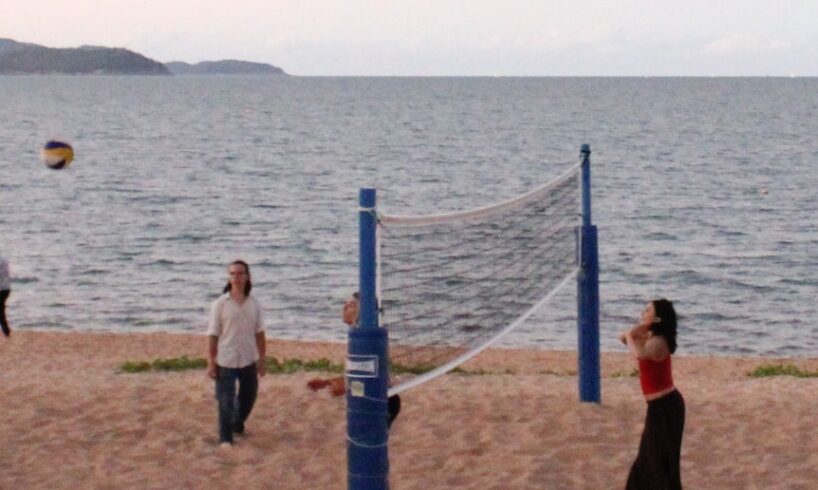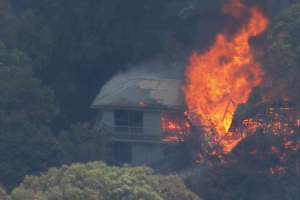
Each afternoon, the beach volleyball nets at The Strand in Townsville are filled with overseas backpackers enjoying the north Queensland winter.
Hostels are fully booked and local hospitality venues are at capacity with workers completing their 88-day regional work requirement for their second-year visa extensions.
Townsville’s Australian Hotel owner Katie Kelliher said she received at least five resumes a day.
“There’s always backpackers looking for work, but this year in particular it’s been next level,” she said.
Katie Kelliher says she has been inundated with backpackers seeking work. (ABC News: Brooke Tindall)
“We are so inundated with the amount of people that are currently looking for work we can’t even take resumes anymore.”
As the coastal towns thrive with the influx of travellers, north-west Queensland businesses and farmers are missing out on the backpacker workforce they rely on.
The Working Holiday Maker visa is a cultural exchange program with over 40 partner countries offering young people the chance to work and travel for up to 12 months.
Backpackers have long been the backbone of the horticulture industry. (ABC Rural: Tom Major)
Visa holders are required to complete 88 days of regional work in tourism and hospitality, the broader agricultural industry, mining and construction, or natural disaster recovery to extend their visas for another year.
Outback missing out
Robert Downie is the local publican at the Royal Hotel in Hughenden, about 400 kilometres west of Townsville.
He said most backpackers were opting to work along the coast, which had impacted on his business.
“We’re losing a lot of those [experienced workers] because obviously you would much rather work in Townsville on the beach where there’s so much more to do than in Hughenden,” he said.
Robert Downie says inland locations are losing out to the coast after visa changes. (ABC News: Georgia Loney)
Julieta Blans from Argentina is one of those completing her regional work requirement in Townsville so she can stay in Australia for a third year.
She said it became harder to find work and accommodation during the winter months because the weather was better.
“Everyone starts leaving in December. Last year there was no-one, the hostel was empty,” she said.
“But now the weather is beautiful.”
Julieta Blans loves the north Queensland winter. (ABC News: Brooke Tindall)
She said the change to include hospitality in the 88-days requirement encouraged her to extend her stay in Australia.
“In my case, I wouldn’t go to do a farm job because I heard from people that their experience wasn’t really good,” she said.
Incentives needed
Shane McCarthy, the president of Agforce, the peak industry body representing primary producers in Queensland, said the short-term workforce had not been the same since the pandemic.
“There always seemed to be a good supply of young people willing and able to come out and have an outback experience while they earn some money,” he said.
But now, Mr McCarthy said grazing properties were struggling to find the extra hands in the paddock.
“You either have to try and do it yourself or you’re putting it off until you can find someone to help you,” he said.
He suggested incentives to get workers out of the cities and into the bush.
“They just need a little prompting to get out of that comfort zone,” he said.
As backpackers now struggle to find work and accommodation in the bustling coastal cities, publican Robert Downie hopes more will venture to the outback.
“I don’t think they quite realise how good it can be out west,” he said.
He said accommodation was often provided for workers, and people around town were keen to get to know visitors.
“We’ve actually had more stay longer because they enjoy being here so much,” Mr Downie said.





